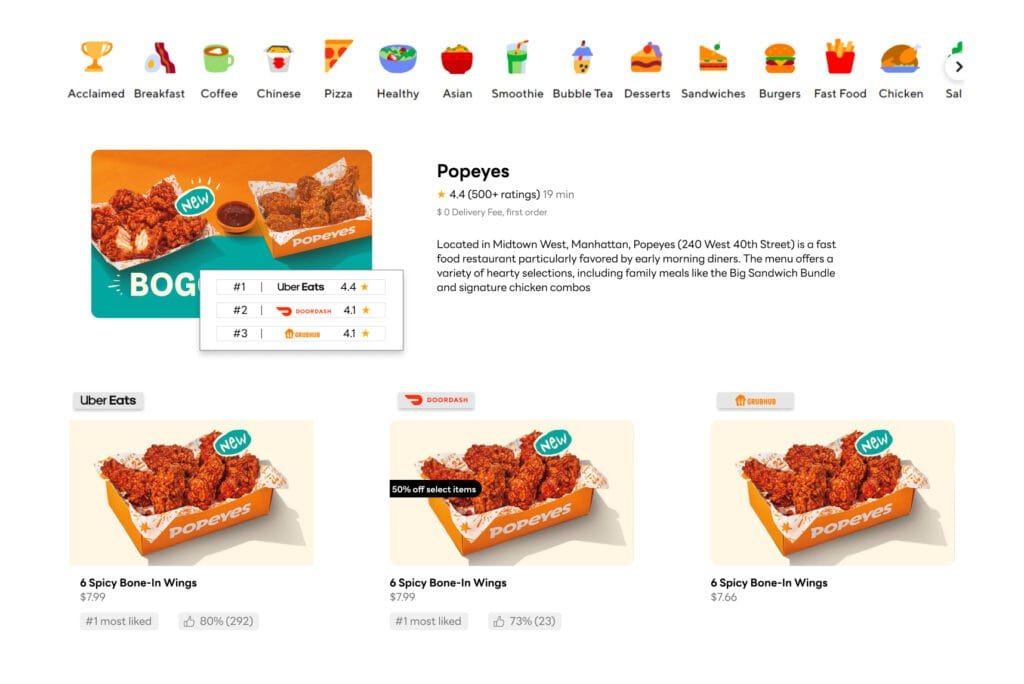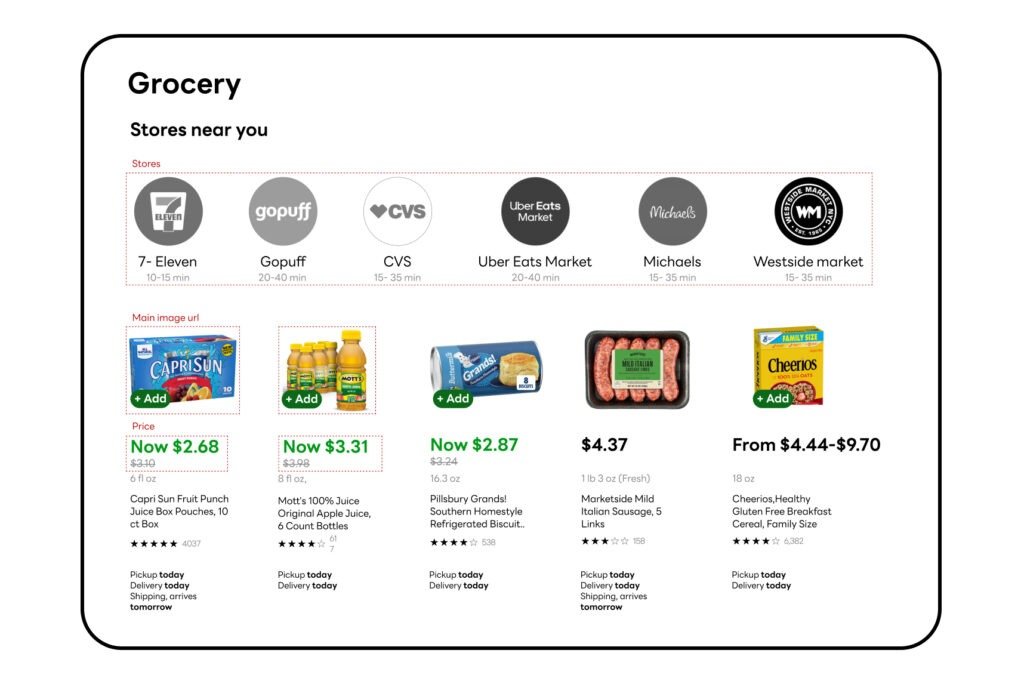Discover market dynamics, track property trends, and update price models using accurate data scraping tools. Work with industry professionals to convert raw real estate data into strong potential for development.

Helping a Real Estate Firm Identify Market Trends & Investment Opportunities with Web Scraping 1. Introduction In the fast-changing real estate market, access

Empowering a Food Delivery Startup with Data-Driven Insights on Pricing & Demand Trends 1. Introduction In the highly competitive food delivery industry, pricing

Enhancing Competitive Intelligence for a Leading Grocery Chain with Real-Time Data Extraction 1. Introduction In the fast-moving grocery retail industry, staying ahead of

How We Helped an eCommerce Giant Optimize Pricing & Product Listings Using Web Scraping 1. Introduction In the competitive world of eCommerce, pricing

United States
This service has been invaluable for monitoring hotel rates across platforms. We can adjust prices quickly based on market trends, helping us stay competitive. It’s saved us hours of manual tracking and boosted bookings. Highly recommended!

Netherlands
Perfect for tracking menu trends and competitor pricing! This data has helped us refine our offerings and pricing strategy. The updates are timely, and the team is responsive to our needs. Highly effective and easy to work with the team.

Singapore
Incredibly useful for keeping up with app store reviews and ratings! We get real-time insights on customer feedback, helping us improve our app based on user needs. The service is accurate, compliant, and essential for our product team.

Canada
Great for tracking competitor pricing and market trends! This service streamlines data, helping us stay competitive. Updates are prompt, and the team is responsive. A valuable time-saver and ROI booster. Highly recommended for eCommerce!

Australia
Essential for our food delivery platform! We get daily updates on menus, prices, and specials, keeping our listings accurate. It’s saved us hours of manual work and boosted customer satisfaction. Reliable and easy to work with, it has streamlined our operations

Sweden
Amazing tool for real estate analytics! We get the latest property listings, pricing, and neighborhood data in one place. It’s accurate, timely, and has streamlined our market research process. Absolutely essential for any real estate firm!
Find answers to common questions about real estate data scraping, including property listings, pricing trends, legal considerations, and best practices for ethical data collection.
Real estate data scraping helps in the collection of information, including property prices, locations, and demand patterns. The analysis of this data reveals market trends, including the increase in property values and the popularity of certain areas. This information can be utilized by businesses to identify investment opportunities and remain informed about changes in the real estate market.
Scraping helps real estate companies track competitor listings and pricing by gathering detailed information on property types, prices, location and availability. This allows companies to compare prices, special deals and peak booking times. These insights help them modify strategies for better productivity and increased revenue.
Experts at Xwiz utilize advanced algorithms to extract data from reputable platforms in order to ensure accuracy and relevance in real estate scraping. They consistently update the data, verify it for errors, and eliminate irrelevant information. Customization options allow you to focus on specific requirements, making sure clients receive precise, up-to-date, and actionable property information.
Real estate data may be extracted from major platforms like Zillow, Realtor.com, Redfin, Trulia, Booking.com and local property listing websites. It can additionally include data from government property records, rental platforms like Airbnb, and real estate markets, enabling complete insights into market patterns and property specifics.
Scraping real estate data is acceptable as long as it complies with website policies, respects copyright regulations, and avoids using sensitive or personal information. Ethical methods include transparency, getting permissions as needed, and ensuring that data is utilized responsibly for analysis, research, or decision-making without violating guidelines.





© 2021-2025 Xwiz Analytics LLP. All Rights Reserved.